8 easy ways to make over your barbecue
Boost the healthfulness of your cookout without sacrificing flavor.
Updated on November 7, 2022
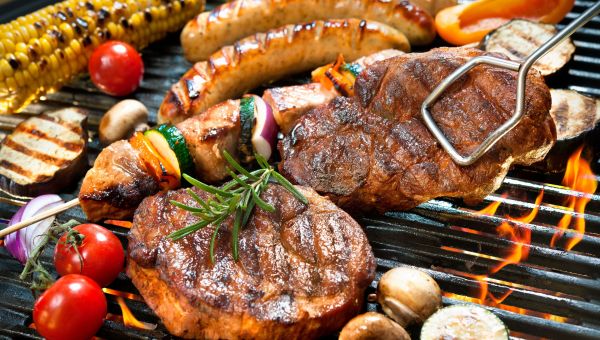
Sweet corn on the cob, tomatoes from the garden, steak sizzling on the grill—could there be a more perfect cookout? Yes, but only if you know the healthiest ways to indulge your taste for barbecue.
You may have heard about the suspected links between grilled meat and cancer. In fact, grilling meat, chicken, and fish—especially if it’s charred—produces suspected cancer-causing chemicals known as heterocyclic amines (HCAs). Animal fat dripping onto hot coals creates another worry: potential cancer-promoting chemicals called polycyclic aromatic hydrocarbons (PAHs).
Though it sounds scary, you don’t have to go completely flame-free. The good news is that there are ways to minimize the health hazards linked to grilling and still enjoy your barbecue. Try these tips to make healthful substitutions.
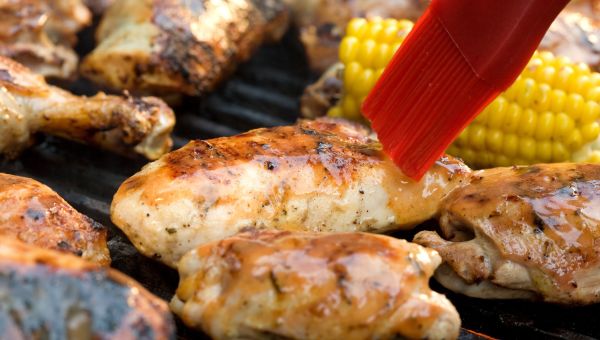
Soak it up
Marinating meat before tossing it on the grill not only boosts flavor and tenderness, it also slashes production of HCAs. An olive oil-based marinade is a great choice. Make your own marinade with virgin olive oil and your favorite herbs, or choose a healthy, store-bought Italian dressing to zing up your chicken or steak. Just keep an eye out for the salt, fat, and sugar content when selecting your dressings and opt for a product that has the shortest ingredients list you can find.
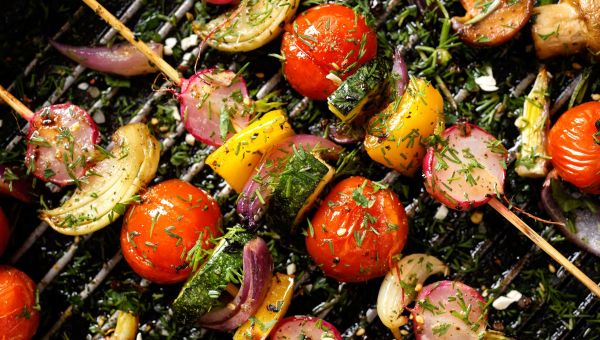
Opt for kabobs
Small pieces of meat cook faster and tend to produce fewer HCAs than giant slabs do. Thread your choice of protein and favorite veggies onto a skewer for a tasty combination of textures and flavor. Some of the best veggies for grilling include cherry tomatoes, bell peppers, mushrooms, zucchini, and onions.
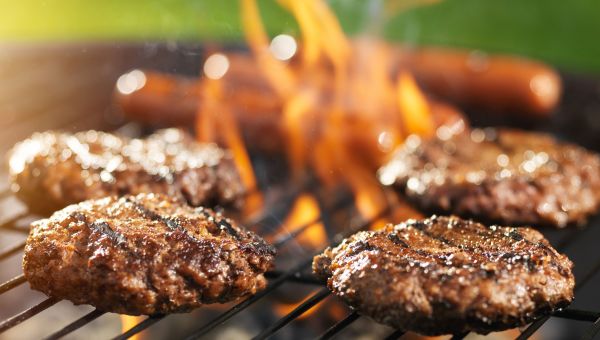
Add a secret ingredient
Do you find your beef, veggie, or turkey burgers end up crumbling on the grill? In addition to mixing in your favorite blend of herbs and spices, try adding wheat bran to your next batch of burgers. Mix in about ¼ cup of wheat bran per pound of ground meat or veggie mixture. This secret ingredient helps bind the burgers together while also helping to reduce levels of HCAs that can be absorbed by the body. The best part? You’ll get a little boost of fiber in the bargain.
For even more flavor and function, sprinkle in some fresh rosemary. Components of rosemary have been shown to reduce the formation of HCAs. Other spices, such as turmeric, have shown some benefit, too.

Finish it fast
The hustle and bustle of a family cookout—whether you’re playing lawn games or sports or just talking and mingling—can stimulate your appetite. Don’t keep your guests waiting, especially if you’ve got a cooler full of drinks to keep cold in the hot sun.
To get your proteins off the grill faster, precook them on the stove or in the oven or microwave earlier in the day. Finishing your meat on the grill takes just a few minutes and adds fantastic flavor while leaving less time for HCAs and PAHs to accrue.
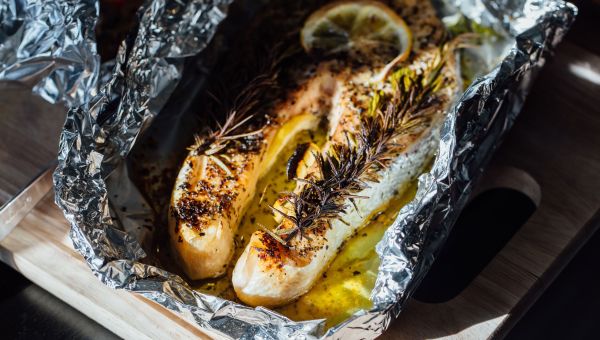
Don't forget the foil
The worst part about backyard barbecues? Scarping down the grill once the party’s over.
Take the hassle out of cleanup and help protect your family from HCAs and PAHs by covering the grate with punctured aluminum foil. This barrier prevents dripping onto the hot goals, and if you flip your meat frequently, you can also reduce excessive charring. Make grilling easier and less messy by wrapping sliced veggies, shrimp, or chicken wings in the shiny stuff before placing them over the coals.
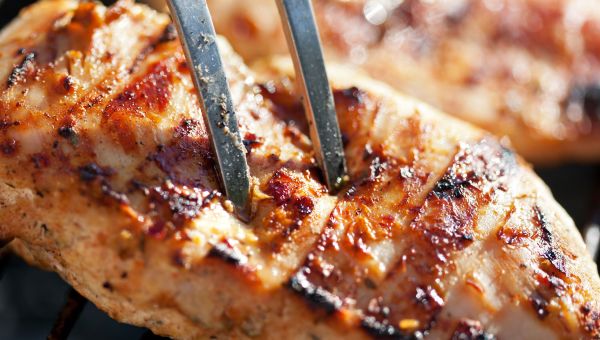
Keep it Lean
You can help stop dripping before it starts by trimming excess fat from your meat. Those fatty edges on beef, pork, and chicken may be tasty, but the dripping fat can up the risk of producing PAHs.
Here’s another method for lowering the fat content of your grilled meats: Cook chicken with the skin on but toss the fatty layer before dining. Just below the skin, you’ll find juicy chicken without the charred outside. You have nothing to lose but grease, calories, and potential carcinogens.
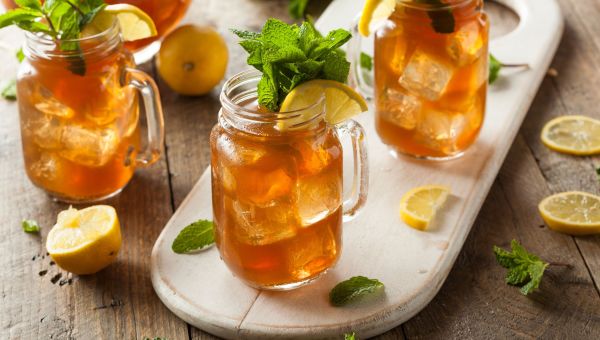
Sip Some Tea
There’s a reason iced tea has been a staple of backyard parties. This summertime classic offers two big benefits: It quenches your thirst and its supercharged antioxidants may help neutralize potential carcinogens. Tea is refreshing, and when it’s made without sugar, it’s good for you, too. Tea’s supercharged antioxidants may help combat carcinogens.
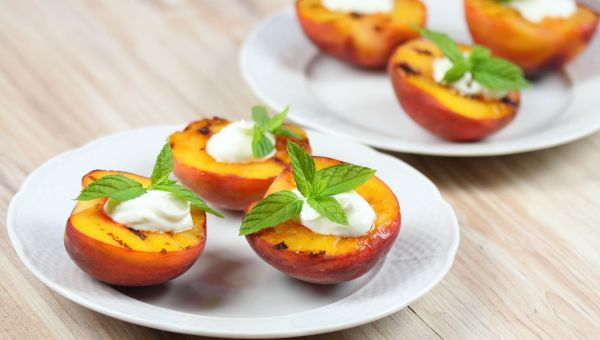
Grill Your Sides and Desserts
Protein typically takes center stage when it comes to grilling, but it doesn’t have to be the only star. As long as you have a hot grill cooking, give your side dishes a chance to shine. The best part: Fruits and veggies don’t produce carcinogens when cooked over high heat because they don’t contain the muscle, proteins, and creatine that meat does. You can grill almost any kind of fruit, including peaches, pears, and pineapple.
Here’s even more inspiration to get started:
- Marinate portobello mushrooms and grill them to create tender, meatless burger patties.
- Brush radicchio with olive oil and orange juice and serve right off the grill.
- Try this easy-to-prepare kale and sweet potato flatbread.

NIH National Cancer Institute. Chemicals in Meat Cooked at High Temperatures and Cancer Risk. Reviewed July 11, 2017.
Melo A, Viegas O, Petisca C, Pinho O, Ferreira IM. Effect of beer/red wine marinades on the formation of heterocyclic aromatic amines in pan-fried beef. J Agric Food Chem. 2008;56(22):10625-10632.
Persson E, Graziani G, Ferracane R, Fogliano V, Skog K. Influence of antioxidants in virgin olive oil on the formation of heterocyclic amines in fried beefburgers. Food Chem Toxicol. 2003;41(11):1587-1597.
Persson E, Sjöholm I, Nyman M, Skog K. Addition of various carbohydrates to beef burgers affects the formation of heterocyclic amines during frying. J Agric Food Chem. 2004;52(25):7561-7566.
Puangsombat K, Smith JS. Inhibition of heterocyclic amine formation in beef patties by ethanolic extracts of rosemary. J Food Sci. 2010;75(2):T40-T47.
Puangsombat K, Jirapakkul W, Smith JS. Inhibitory activity of Asian spices on heterocyclic amines formation in cooked beef patties. J Food Sci. 2011;76(8):T174-T180.
Khan N, Mukhtar H. Tea and health: studies in humans. Curr Pharm Des. 2013;19(34):6141-6147.
NIH National Cancer Institute. Tea and Cancer Prevention. Reviewed November 17, 2010.
MD Anderson Cancer Center. Tea and cancer prevention 101. April 01, 2021.
More On


video
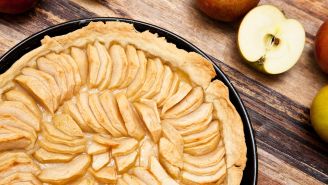
article
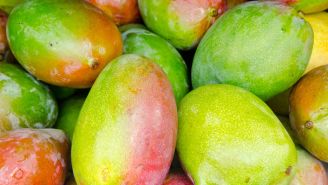
slideshow


video


video
